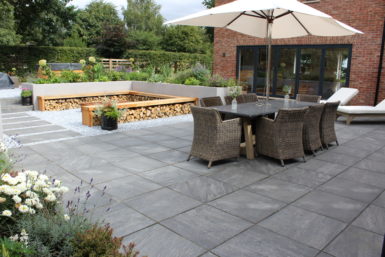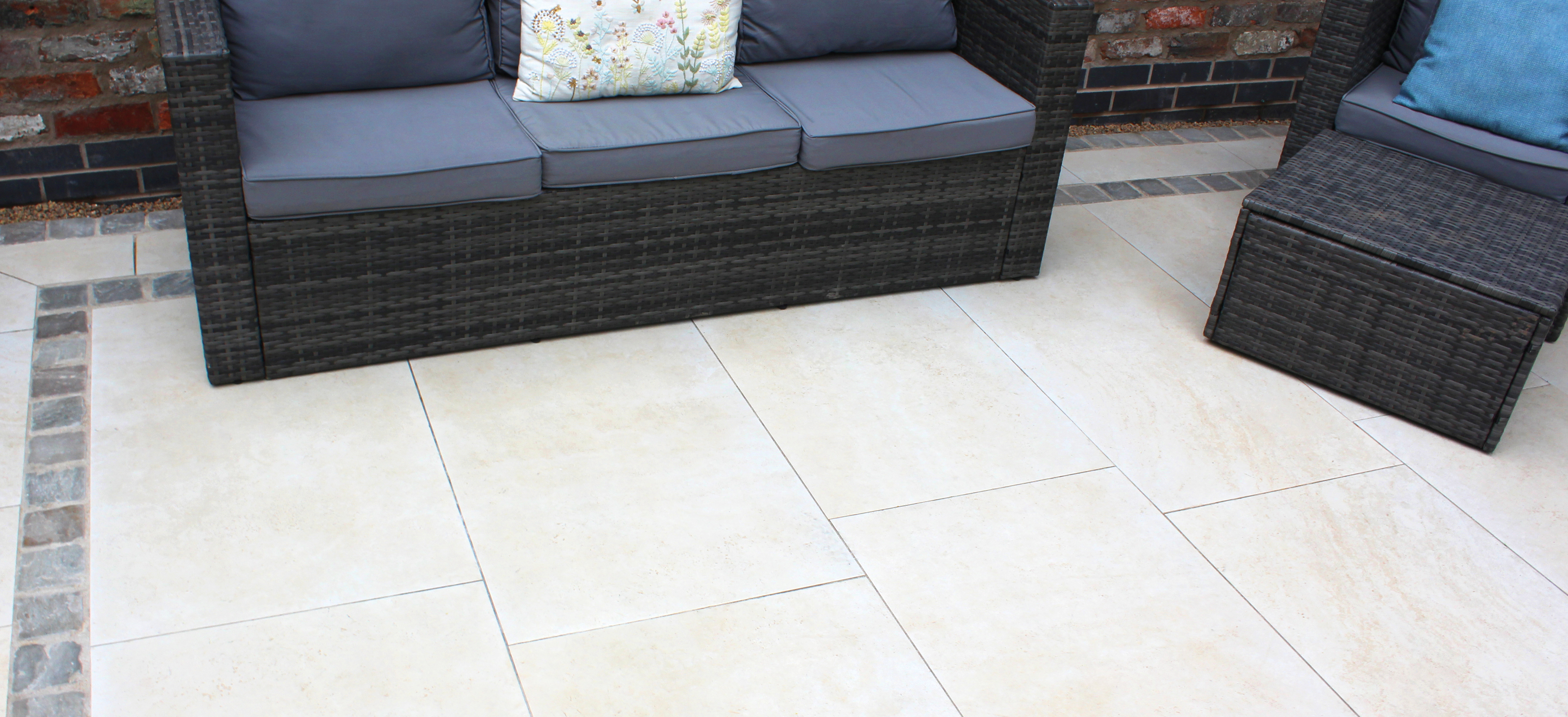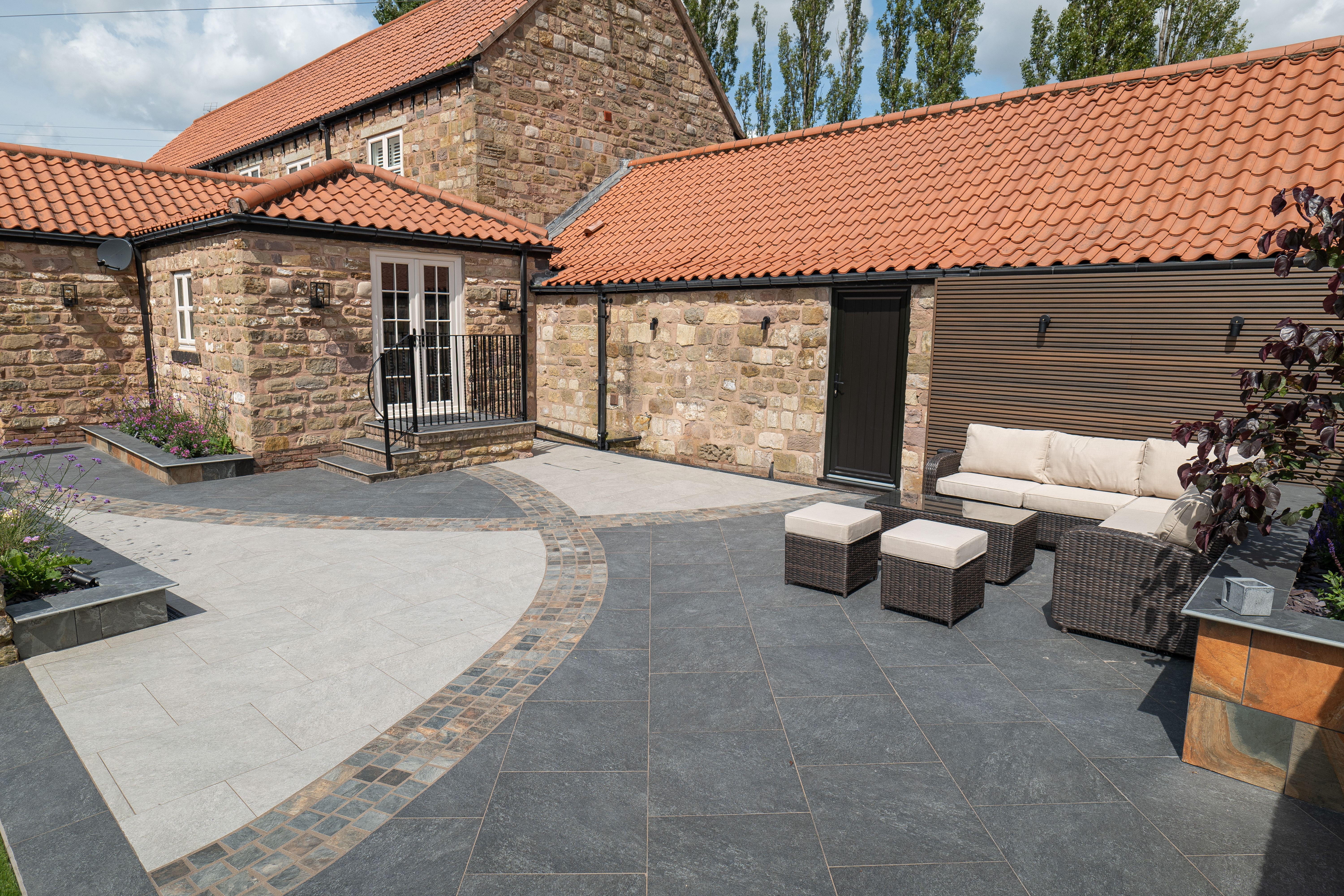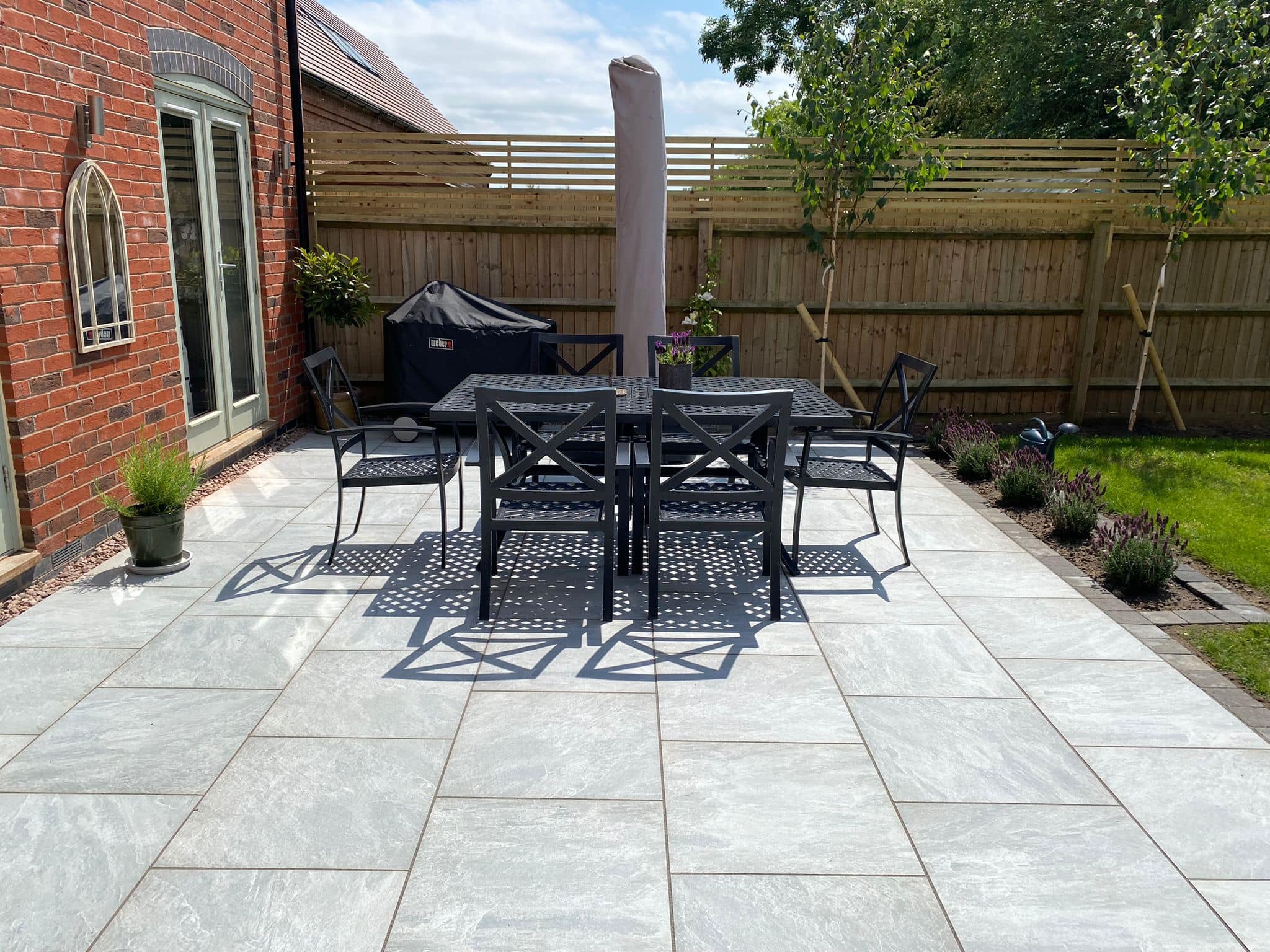THE PROS & CONS OF PORCELAIN PAVING

Vitrified porcelain paving has become an increasingly popular choice for homeowners and landscapers looking for versatile paving options. Whether you’re planning to create a new patio, garden path or driveway, you may be considering porcelain tiles, but you may be unsure whether they’re the right choice for your project.
This porcelain paving pros and cons guide explains what vitrified porcelain is, the type of things it can be used for and the advantages of choosing it over other materials.
WHAT IS PORCELAIN PAVING?

WHAT IS VITRIFIED PORCELAIN MADE FROM?
Vitrified porcelain paving is produced through the vitrification of its component materials, i.e. clays, feldspar and siliceous sands. These materials are sintered through firing in kilns over 1200ºC, compacting the elements which closes the pores and gives the porcelain its excellent technical properties that enable it to be the perfect paving and cladding choice for many domestic and commercial projects. The specific composition will vary between manufacturers and it may be called different names such as vitrified paving or porcelain paving.
WHAT IS VITRIFIED PORCELAIN USED FOR?
The manufacturing process for creating vitrified porcelain means that the tiles are much less porous and have a very high level of water resistance. This makes them ideal for outdoor use on things such as patios, driveways and paths. The tiles can be manufactured to give various finishes, textures and colours which is why they are used in a range of commercial and residential landscaping projects.
THE ADVANTAGES OF PORCELAIN PAVING

DURABILITY
During manufacturing, superheating turns clay and minerals into a glass-like material which becomes extremely dense when cooled. This is the vitrification process and is what makes porcelain paving slabs so durable, even in heavy traffic areas such as paths, driveways and patios. Once laid, they will last years without any extensive wear and should not need to be replaced for a long time.
LOW MAINTENANCE
Unlike stone slabs and timber decking, vitrified porcelain paving doesn’t need to be sealed thanks to its dense composition. Because the material is so hard-wearing, it can be cleaned down with pressure washers without risk of damage.
Specialist porcelain cleaners are available to make cleaning quick and easy, take a look at our Pavetuf range of specialist cleaners for more information.
VERSATILE DESIGN
In addition to being physically durable, vitrified porcelain paving can be made in a wide range of different colours, textures and designs to suit any style or project. The versatile printing process means you can get a huge range of patterns including porcelain paving with a natural stone finish and porcelain paving with a wood grain finish.
FROST AND WATER RESISTANCE
A common problem with other paving types is water absorption which can cause damage over time, particularly during colder months when expanding frost can create cracks. Porcelain paving slabs are non-porous which drastically reduces water absorption, making them last much longer.
SLIP-RESISTANCE
When it comes to patios, driveways and paths, it’s important to have a sturdy surface that is safe to walk on all year round. It’s a common misconception that porcelain can be slippery. However, porcelain paving tiles can be finished with a wide range of different textures to create anti-slip surfaces that are ideal for areas that get a lot of foot traffic. All of the Vitripiazza range meets the required BS EN 14411 standard.
You can download all of our Test Data in the Vitripiazza Knowledge Hub.
THE DISADVANTAGES OF PORCELAIN PAVING

CUTTING AND INSTALLATION
One of the biggest benefits of porcelain paving is that the tiles are so hard and durable however, this can make them quite difficult to cut- you’ll need to use a diamond-edged blade to cut through which can be slightly more expensive. Our Pavetuf range offers a diamond-edged cutting blade, perfect for cutting porcelain.
ARTIFICIAL TEXTURE
Some homeowners and landscapers will have a personal preference for natural stone paving for its texture. As a manufactured material, porcelain paving doesn’t have a naturally occurring texture. However, the ultra-realistic printing process allows you to replicate these textures while still getting the benefits of porcelain.
COST
The cost of porcelain paving can sometimes be a more expensive option compared to some other paving materials - this could be a disadvantage if you’re working to a tight budget. However, considering the durability and longer lifespan of porcelain paving, it can save more money in the long run.
Whilst cost can be a barrier to using porcelain paving, here at Vitripiazza we offer a wide range of porcelain options, including those for a modest budget.
PORCELAIN PAVING FOR ANY PROJECT...
Hopefully, this guide has helped you decide whether porcelain paving is the right choice for your home or project. Vitripiazza offers a wide range of premium, vitrified paving tiles in a range of different colours and textures. Browse the full collection to order a sample or find a stockist.